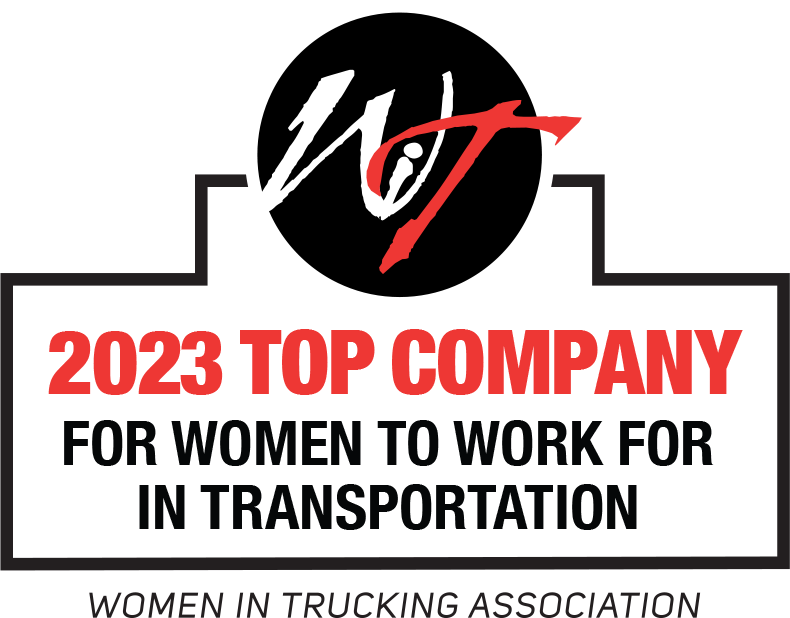Less than a year ago, members of the media were hailing the logistics industry as a vital cog in the massive cooperative effort required to get a COVID-19 vaccine rapidly distributed to most of the world.
Our industry is still making COVID-19 headlines today – but for a different reason.
In a nutshell, many of our leading trade organizations are strongly opposed to the vaccine mandate. While the potential mandate is under review with the Sixth Circuit Court, which was randomly selected to hear a consolidated action, we must all be prepared for the direct and indirect impacts on capacity.
On November 9, several of these industry groups – including the American Trucking Association, the International Warehouse Logistics Association, the Louisiana Motor Truck Association, and the Texas Trucking Association – joined with other eminent organizations to file suit against the mandate, citing concerns about its potentially negative repercussions for the supply chain and our country’s economic recovery.
And on November 11, the president of the Pacific Maritime Association (which negotiates labor agreements for personnel who work at more than two dozen U.S. ports) came forward with his group’s concerns that the mandate would exacerbate what is already a significant supply chain crisis.
Meanwhile, some of our largest carriers have alluded to the possibility of strong resistance within their ranks, even if the mandate is softened by the promise of economic incentives.
“I’m vaccinated. We pay bonuses to get people to get vaccinated. But the people that make this country’s logistics system go, a large percentage, simply do not want to be vaccinated,” said FedEx Chairman and CEO Frederick W. Smith in a recent interview with CBS’s Face the Nation.
We could go on, citing similar comments about labor shortages and bottlenecks from many other industry leaders and carriers. But you get the idea.
Besides, the real question is, are these predictions accurate? And should you be fastening your seatbelts for an even bumpier, pricier, and more congested road ahead come January 4?
Those are queries that our friends at Cowen Equity Research addressed quite eloquently and accurately in their November 5 industry update, Mandate Window Cracked Open Just Enough For Truckers To Squeeze Through?
According to that update, “while there were no explicit exemptions laid out for commercial drivers [in the mandate]… the rule does not apply to employees who work 100% alone or outdoors, and as long as any indoor contact with others is minimal.” Based on those criteria, Cowen and many others believe that over-the-road drivers operating in a single cab environment will be exempt, joining the many owner operators who won’t be subject to the mandate because they’re not large company employees.
That’s the good news.
The bad news is that Cowen also believes that duel-cab teams and the large companies that rely heavily on those teams will still need to comply – and that this could lead to a large percentage of drivers electing to leave the profession.
(And it has good reason for saying so. According to two different surveys – one conducted by the Conversion Interactive Agency and the other conducted by the ATA – approximately half of the nation’s truck drivers aren’t vaccinated, and most of them plan to remain that way. In fact, nearly two-thirds of unvaccinated drivers said they’d refuse to be vaccinated under any circumstances. And 25% of them said they’d simply leave the trucking industry altogether if their employers decided to implement the mandate.)
So, what’s the takeaway for you as a shipper – regardless of how you and your company feel about the mandate?
First, don’t be surprised if the driver shortage becomes even more critical – or to see truckload, LTL and parcel shipping rates rise accordingly: “Even small dips in the over-the-road driver population tend to have significant effects on the laws of carrier supply and demand,” said AFS CEO Tom Nightingale, “and this dip promises to be anything but small.”
Second, expect to see another hidden expense tacked onto your transportation bills because per Cowen’s update, “carriers that do not fall under any type of exemption will likely incur expensive testing operations…and likely pass testing costs on to shippers.”
In addition, be on the lookout for some testing-related speed bumps, especially in terms of HOS.
“How [the hours of service] issue would interplay with the requirement for time off for testing while awaiting testing results is an issue of substantial concern,“ the ATA said in a late October letter to the Biden administration.
And finally, if the vaccine mandate is upheld, we should all be considering the indirect impacts it could have on capacity. For example, if warehouse personnel are forced to leave their jobs and loading docks operate more slowly due to staffing shortages, it will mean longer load and unload times and therefore fewer turns on a truck.
Now we know what you’re thinking: Can’t unvaccinated drivers and warehouse workers who don’t want to get vaccinated simply move to smaller carriers and logistics companies?
They absolutely can – and according to the same ATA survey mentioned above, as many as 49% of them will. But that presents another potential challenge, because as more long-haul truckload and LTL drivers migrate to what the Journal of Commerce dubbed “smaller, lower general freight haulers,” it could significantly increase the need to rely more on the spot rate market.
You’re also probably wondering whether many drivers’ threats to quit will actually turn out to be more talk than action – much like they were before the 2017 ELD mandate went into effect.
It’s certainly a possibility. Even so, it’s highly unlikely that all of the logistics professionals who have steadfastly chosen to remain unvaccinated will have a change of heart.
In other words, fasten your seatbelts, because like it or not, it’s going to be a bumpy ride for all of us.
To be clear, AFS is not taking a public position on vaccines. But our duty to customers is to be certain that they have timely and accurate data to help make decisions, because as our CEO has said, “AFS was founded on transparency and advocacy for our clients so that we can ensure their success.”
Instead, we just wanted to provide you with our version of a pharmaceutical company’s package insert (which includes information not just about all of the good things a medication can do but also about all of the potential side effects it can have) so that you can prepare your supply chain operations accordingly.
We hope that you’ve found it helpful. Just as important, we hope you’ll feel free to pick up the phone and give us a call if you’d like to discuss the logistical implications of this issue and what it might mean to your company in greater detail. As was the case when this pandemic first hit, we all continue to be in this longtime crisis together. And together as an industry, we’ll continue to persevere and deliver.









